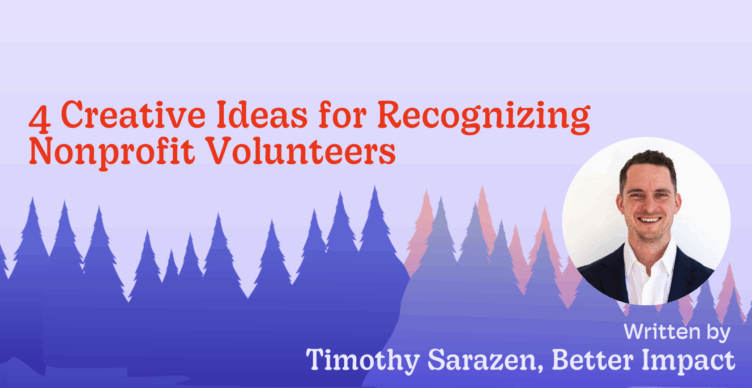Ethical Storytelling, Story Collection Tips
5 Keys to Ethical Story Collection for Nonprofits
58% of nonprofit professionals struggle with wanting to collect stories while doing no harm to their community.
In the nonprofit sector, we know that impact stories are powerful tools that help connect current donors and potential supporters to your mission. After all, sharing the transformational stories of the people you serve has been a successful fundraising strategy for decades – just ask any fundraiser!
However, our sector is witnessing a shift in real-time. In the recent past, stories were often written in emotionally-provoking ways that used language that perpetuated stereotypes, “othering” and positioning the donor as the “savior” of nonprofit beneficiaries. But, with the rise of new resources like the 2023 Ethical Storytelling Report and the When Bearing Witness Podcast, as well as new gatherings, like the Ethical Nonprofit Summit, it is clear that nonprofit professionals are searching for a better, more ethical, way to collect and share community stories.
Today, more than ever, it’s crucial that stories are collected ethically to ensure they honor the dignity and autonomy of the individuals they belong to. Ethical story collection not only builds trust with your community but also deepens relationships with those you serve. In this article, we’ll explore the 5 keys to ethically guide your story collection process, all of which were sourced and summarized from the 2023 Ethical Storytelling Report.
5 Keys to Ethical Story Collection for Nonprofits
1. Give Your Community the Microphone 
With today’s technology, nonprofits no longer need to speak for others. When you give your community members the opportunity to share their stories themselves, you empower them to express their experiences in their own words and in their own way. This approach not only amplifies authentic voices but also shows respect for the individuals’ autonomy, allowing them to shape the narrative and highlight what’s most important to them.
2. Encourage Sharing When & Where They Are Comfortable
Providing a safe and comfortable environment for storytellers is crucial. When individuals feel pressured or uncomfortable, they may not share the full extent of their experiences, or they might feel vulnerable afterward. By allowing storytellers to share when and where they feel most at ease, you reduce stress, build trust, and create space for genuine and impactful storytelling. Consider letting them choose their preferred setting, time, and medium—whether that’s face-to-face at a park, through a written submission in a letter, or by video submitted via MemoryFox from the comfort of their own home.
3. Be Upfront About How You Intend to Use Their Story
Providing information ahead of time is the type of transparency that is absolutely key in ethical storytelling. Storytellers deserve to know exactly how their story will be used and in what contexts it will appear. For example, an individual might be more willing to provide personal details for a confidential grant report but may feel uncomfortable sharing the same information on social media. By being clear and upfront about your intentions, you give them the power to decide what they’re comfortable with and adjust their level of sharing accordingly. This honesty fosters trust and mutual respect.
4. Use Prompts With Strength-Based Messaging
The questions you ask will shape the stories you receive. Strength-based prompts encourage storytellers to focus on resilience, achievements, and positive outcomes, which can lead to powerful, uplifting narratives that celebrate the strengths of the community rather than emphasizing challenges. Reflect on whether your questions highlight empowerment, hope, and growth. By framing prompts this way, you not only receive stories that align with these values but also support storytellers in sharing experiences that they feel proud of.
5. Capture Stories in Real-Time & All Year Long
Memories fade, and emotions change. Capturing stories as close to the actual event or experience as possible helps to retain the authenticity and passion of the moment. Real-time storytelling provides a more accurate, vibrant account of the storyteller’s feelings and experiences. This approach ensures that your narratives are rich, engaging, and genuine. Whenever possible, provide opportunities for immediate reflection, such as recording short videos or audio clips on-site, or offering digital options that allow community members to share while the experience is fresh.
Ethical storytelling goes beyond simply collecting stories; it’s about building trust and respect with the communities you serve. By following these five keys to ethical story collection, nonprofits can ensure that the stories they share not only support their mission but also honor the dignity and autonomy of the storytellers. Remember, the most impactful stories are those that are shared with consent, authenticity, and care.

About the Author
Carly Euler
Marketing Director, MemoryFox
Carly comes from the nonprofit world ready to elevate the hundreds of nonprofits in the MemoryFox community. She currently serves as the Co-Chair of the Wily Network’s Young Professionals Association, and has previously held positions at the Breast Cancer Coalition of Rochester, the Code of Support Foundation, Kenya Lacrosse Association, and the BOMA Project, where she has specialized in marketing, communications, and fundraising. Storytelling has been an integral part of each role.




